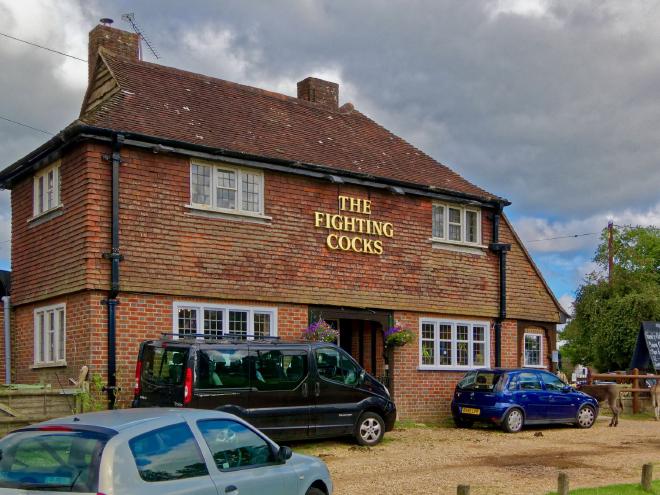Brexit explained

For my American friends and neighbors, my brief summary of this whole “brexit” mess.
What happened #
Nigel Farage, a stockbroker’s son educated at an expensive private school, managed to portray himself in the media as a man of the people. His party, UKIP, engaged in racist campaigning, along with the usual far-right homophobia and rants about women.
The BBC gave disproportionate coverage to UKIP, and initially they were treated as a joke. Later, the UK press took a blatantly pro-brexit position.
Many right-wing members of the ruling Conservative Party got friendly with Farage. As his popularity rose, unprincipled Tory opportunists like Boris Johnson decided to join him.
Faced with defecting Tories, Prime Minister David Cameron decided to hold a referendum on leaving the EU. He didn’t need to, but his cunning plan was that the nation would vote overwhelmingly to stay, and UKIP would no longer be a threat to his perceived leadership of the right.
Nigel Farage and Boris Johnson claimed that leaving the EU would save Britain £350 million a week. Farage claimed that he would funnel that money into the National Health Service to save it. Pretty much every fact-based source said the figure was complete fantasy, but people who wanted to leave the EU kept repeating it.
The campaign against the EU became openly racist. Both sides indulged in toxic campaigning styles.
Conservative Minister Andrea Leadsom assured voters that there was absolutely no economic danger to the UK from leaving the EU.
In the last few days before the referendum, a crazed man shot a pro-EU MP dead, while screaming “Britain First”, the name of a violent far-right group. In court, he gave his name as “Death to traitors, freedom for Britain”.
And then 79% of eligible people voted.
How the vote went down #
Old people voted to leave the EU. Young people overwhelmingly voted to stay.
The most educated were the most likely to vote to stay.
People in areas with lots of immigrants tended to vote in favor of staying. People with very few immigrants were the most likely to vote to leave in order to keep it that way.
Areas most economically dependent on the EU were the most likely to vote to leave.
Scotland overwhelmingly voted to stay in the EU. Northern Ireland also voted to stay.
What happened the day after #
Nigel Farage gave a victory speech in which he gloated that he had won “without a bullet being fired”, which was no doubt news to the family of MP Jo Cox. But that thing he said about £350m a week for the NHS? Oops, that was a mistake. And the idea that there would no more immigration from the EU? People are “going to be disappointed”.
The pound crashed against the dollar to its lowest level since 1985. The FTSE 250 stock index of UK companies dropped 12.3%, then rallied slightly to end up down 7.3%.
Shares in UK banks dropped up to 21%. Shares in some construction companies dropped 30-40%.
Standard & Poor and the other ratings agencies downgraded the UK’s credit rating.
Areas of the UK dependent on EU funding started to worry.
People who voted to leave were interviewed by the media, and many said they had meant it to be a protest vote and didn’t think the UK would actually vote leave. Tens of thousands asked for a do-over.
What happens next #
The UK government is not legally obligated to obey the results of the referendum. However, Prime Minister Cameron has already resigned, and businesses aren’t waiting around to see if his replacement decides to ignore the vote.
Many multinational businesses based in the US have a major presence in the UK, because it was a convenient English-speaking base country for trading access to the EU. For companies based in other EU countries, the UK has been a convenient place to locate offices and trade with the USA. For multinational corporations, the EU was fantastic — uniform trading laws, no international barriers, and so on. It is strongly in their interests to preserve the EU at all costs. That means they’re motivated to leave the UK as soon as possible. They don’t want to get stuck on a sinking ship with their business crippled by trade barriers, but more than that it’s in their interests to see the newly independent UK fail, so that other countries will be dissuaded from leaving the EU. So, expect a string of major layoffs and UK offices closing.
As Charlie Stross points out, London is the global #1 market for derivatives trading in Euros. That must end if the UK leaves the EU. You can therefore expect most of the big banks in the City of London to move elsewhere.
Scotland’s Green Party and SNP will collaborate to force another referendum on Scottish independence, which will probably pass this time, so that they can remain in the EU.
Northern Ireland is pushing for a referendum on Irish unification.
Right-wing parties across Europe are all hoping to repeat UKIP’s successful strategy in their own nations.
Applying the lessons of the above to the Donald Trump phenomenon is left as a depressing exercise for the reader.